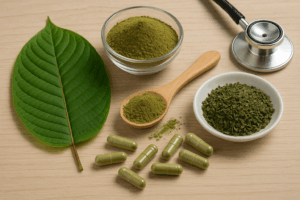For many people struggling with addiction they can feel completely alone – even if that’s not the case. They may have tons of friends and family and loved ones around them that make up a crucial support network but… how do they ask for help? How do they reach out? This time on Direct2Recovery we want to give you tips on how you can help a loved one going through recovery.
How to Support an Addict in Recovery
First, Educate Yourself
If you truly want to help support your loved one through their recovery, learning more about addiction and the road to recovery. Addiction and recovery both are difficult to understand and reckon with, often being the largest challenges in people’s lives. Having someone who understands those challenges as well and can offer support is huge. Learn and understand triggers, health issues, enablement, the psychological effects of addiction, and more. Understanding these aspects can make it much easier to understand and assist a recovering addict.
Prepare for Potential Problems
Addiction causes many, many long-lasting problems that don’t just go away when someone gets sober. And these problems don’t just affect the recovering addict. Financial problems are common as the recovering addict works to rebuild their life, career and pay off debts. Health problems also are common. Addiction does terrible things to the body, some of which are permanent. These problems will live with the person long after they kick their addiction, unfortunately, and will add stress and complications to their life going forward. And of course, there are relationship problems, trust that may never be regained, wounds that don’t heal. That’s just the way of things. Understanding these potential problems and preparing for them can help you support the recovery of your loved one.
Keep Your Expectations Reasonable
Anyone who has an addict in their life wants to see them beat this thing and get clean, sober, and happy. Some hold out hope that this addiction is the key to all of their problems and that if they can just kick this everything will be fixed. This isn’t true, unfortunately. Beating addiction isn’t a cure-all, it’s just the first step in fighting their way back. Having unreasonable expectations can also cause disappointment which you don’t want to be giving off – it will just make things harder for your loved one who is already trying their hardest.
Make Your Own Changes
Loved ones can also support recovery by making their own lifestyle changes. They might not be enjoyable, or the easiest things for you to do, but these are all steps that could greatly increase your loved one’s chance at recovering.
- Remove addictive substances from the home (like alcohol)
- Avoid events where substance abuse is possible
- Find and create new sober hobbies and activities to do together
- Build new friendships with other sober people
Help Them Seek Treatment
And of course, if they’re not in recovery yet, one of the biggest things you can do to support your loved one is to encourage them to get treatment.
At Direct2Recovery, our mission is to passionately help as many people as they can. Their doctor takes the time to get to know you or your loved one to create a treatment plan that works best for them. After hearing your treatment plan, every one of their staff members will work with you as much as you need, because the Direct2Recovery team is truly committed to your success.
If you can’t go into the clinic, we also offer telemedicine for select individuals. These virtual visits include supervised drug testing and counseling with a board-certified physician.
If you are struggling with opiate addiction, Direct2Recovery wants to help you regain control of your life, and we’re ready to help. Contact us to learn more.





